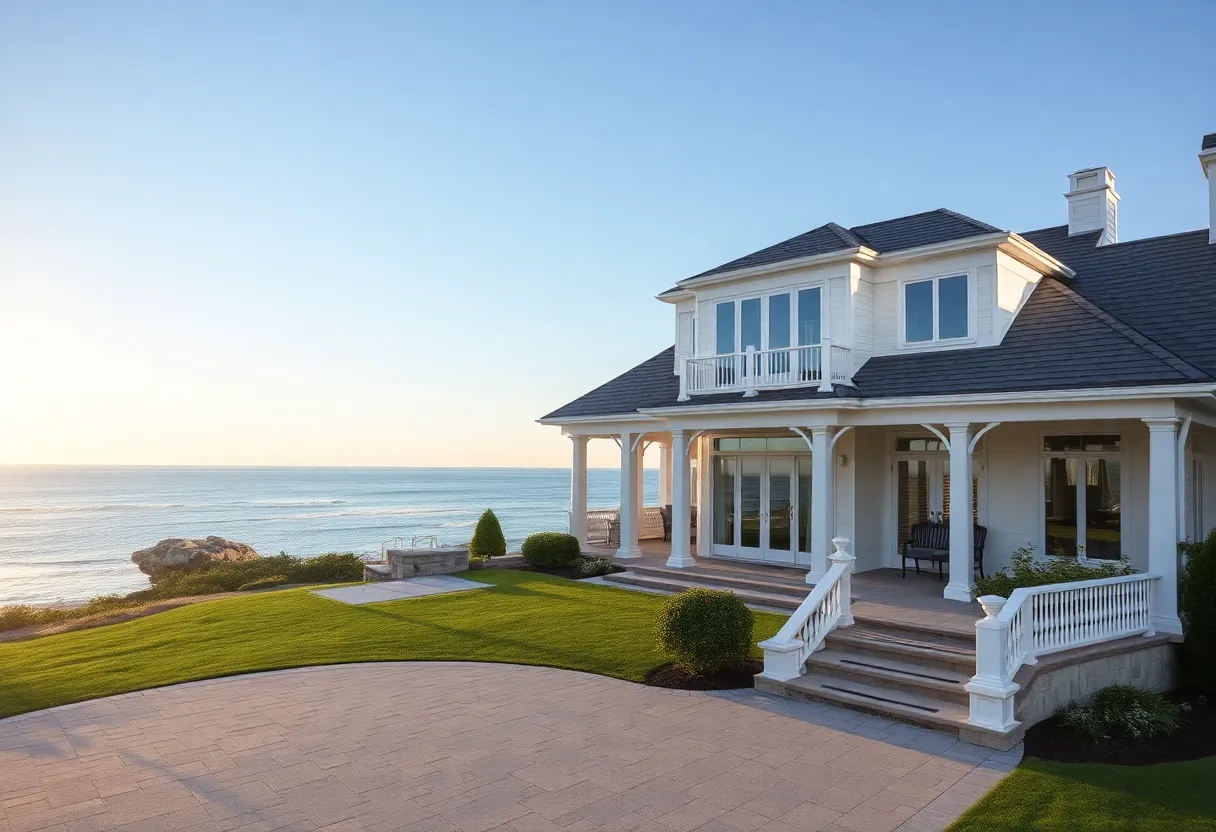News Summary
Rhode Island is advancing a controversial luxury home tax targeting non-primary residences valued over $1 million. The tax, which has drawn criticism from influential figures, aims to impose an annual fee based on property value. While supporters argue it addresses wealth inequality, opponents warn it may harm the local economy and real estate market, potentially driving affluent homeowners elsewhere. The proposal has passed both legislative chambers and awaits the governor’s approval, raising concerns about the impact on property owners and community ties.
Rhode Island is moving forward with a proposed tax plan known as the “luxury home tax,” which specifically targets non-primary residences valued over $1 million. This initiative aims to impose a financial burden on those who own expensive properties that are not utilized as their main residences. The tax would require an annual payment of $2.50 for every $500 of assessed value beyond the initial million dollars of the property’s worth.
The proposal has sparked significant discussion within the state, drawing attention from various stakeholders, including high-profile critics like Barstool Sports founder Dave Portnoy. Portnoy has publicly expressed concerns regarding the potential consequences of such a tax on Rhode Island’s economy. He warns that the luxury home tax might drive affluent residents to seek homes in states with more favorable tax structures, thereby affecting the local economy. According to some experts, such wealth taxes could exacerbate socioeconomic inequalities by prompting wealthier individuals to relocate.
Critics of the proposed tax also emphasize the implications for property rights and tax fairness. They argue that targeting specific groups of property owners may set a concerning precedent, creating a slippery slope for further taxation measures. Meanwhile, proponents of this tax assert that it could serve as a mechanism to address wealth inequality and generate vital funding for state services.
The controversy surrounding the tax is not without precedent, as several neighboring states, including Massachusetts, have implemented similar taxes aimed at luxury homes. States like New York, Connecticut, and California have long established higher tax brackets for luxury properties, suggesting a growing trend across the nation to impose greater financial responsibility on wealthier homeowners.
In the eyes of taxpayers, especially those owning second homes in Rhode Island’s coastal communities, the tax is a matter of increasing urgency. Should this tax be enacted, property owners will have until July 2026 to demonstrate their properties’ primary residency status or consider listing them as rental properties to avoid incurring additional taxes.
The proposal has a unique facet, often referred to as the “Taylor Swift Tax,” due to the pop icon owning a coastal estate in Watch Hill, valued at approximately $17 million. If the luxury home tax comes into effect, Swift could see her annual tax burden rise by an estimated $136,000. This potential scenario has brought more media light to the tax’s potential implications for high-value property owners.
Opponents of the tax further argue that it could negatively impact the local real estate market, dissuading high-end vacation homebuyers from making investments in Rhode Island. They express concern that the tax may unintentionally penalize multigenerational families and local residents who own secondary homes, shifting the burden disproportionately onto those who play an integral role in maintaining community ties.
As discussions unfold about wealth inequality and tax policy in the U.S., Rhode Island lawmakers recently demonstrated enthusiasm for the proposal, with the House of Representatives approving it by a vote of 66 to 9. The proposal has since passed in the Senate and awaits the governor’s signature to finalize the new tax measures.
The outcome of this proposal remains uncertain, and many stakeholders, from property owners to policymakers, are closely monitoring its potential ramifications for the state as a whole. The decision to move forward with the tax could alter the dynamics of the Rhode Island real estate market and redefine interactions among different socioeconomic classes within the state.
Deeper Dive: News & Info About This Topic
- Nasdaq: Portnoy Slams Rhode Island’s Proposed Luxury Home Tax
- NY Post: Rhode Island’s Taylor Swift Tax Takes Aim at Luxury Second Homes
- Providence Journal: Pushback to Rhode Island’s Proposed Taylor Swift Tax
- Wikipedia: Rhode Island
- Encyclopedia Britannica: Rhode Island

Author: STAFF HERE PROVIDENCE WRITER
The PROVIDENCE STAFF WRITER represents the experienced team at HEREProvidence.com, your go-to source for actionable local news and information in Providence, Providence County, and beyond. Specializing in "news you can use," we cover essential topics like product reviews for personal and business needs, local business directories, politics, real estate trends, neighborhood insights, and state news affecting the area—with deep expertise drawn from years of dedicated reporting and strong community input, including local press releases and business updates. We deliver top reporting on high-value events such as WaterFire, Rhode Island International Film Festival, and Rhode Island Comic Con. Our coverage extends to key organizations like the Greater Providence Chamber of Commerce and Providence Warwick Convention & Visitors Bureau, plus leading businesses in finance and manufacturing that power the local economy such as Citizens Financial Group and Textron. As part of the broader HERE network, we provide comprehensive, credible insights into Rhode Island's dynamic landscape.





